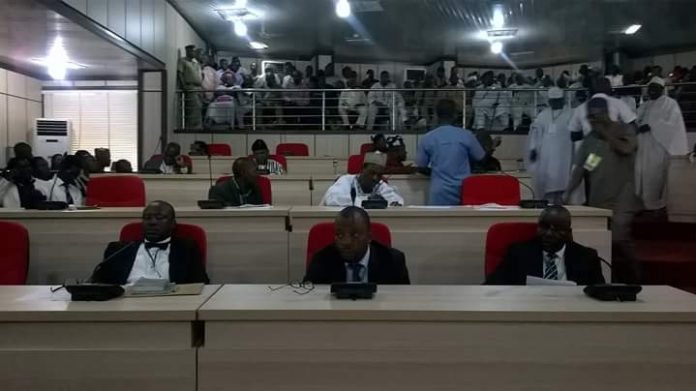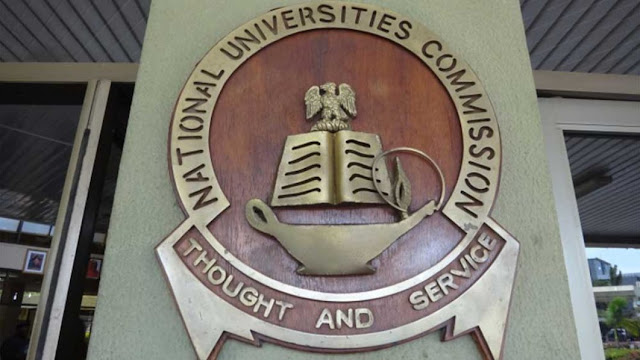While the dust stirred by the proscription of the Post-Unified Tertiary Matriculation Examination (Post-UTME) still swirls, the Federal Government penultimate week announced the cancellation of the second interview test, conducted by the National Examination Council (NECO), for admission into the 104 unity schools with effect from the 2017/2018 academic year. ENO-ABASI SUNDAY, UJUNWA ATUEYI (Lagos) and CORNELIUS ESSEN, (Abuja), write on the reactions that have greeted these decisions.
Clearly, the cancellation of the post-Unified Tertiary Matriculation Examination (Post-UTME), and the annulment of the second interview test, conducted by the National Examination Council (NECO) effective 2017/2018 session, appear to be the two decisions taken by the Federal Government that have given rise to an equal amount of protagonists and antagonists.
During the 2016 Combined Policy Meeting on Admissions to Universities, Polytechnics and Other Higher Institutions in the country, which took place in June in Abuja, it took the Education Minister, Adamu Adamu just a few words to put an end to the post-UTME.
That declaration was this simple. “As far as I am concerned, the nation has confidence in what JAMB is doing. The universities should not be holding another examination and if the universities have any complain against JAMB let them bring it and then we would address it. If JAMB is qualified enough to conduct tests and they have conducted tests, then there will be no need to conduct another test for students to gain admission.”
Since making that declaration, the protagonists and their antagonists are hard at work, in their bid to outdo each other, as their “superior arguments wafts across, even with some commentators also calling for the outright abrogation of the UTME.
One of those, who are in favour of the abolition of UTME, is an educationist, Amu Gabriel Idogbo, who is of the view that “UTME, post-UTME are unnecessary in a 21st Century educational system.”
Insisting that these processes were unnecessary in the first instance, Idogbo said, “The world is civilised today and things have changed for the better. The issue of Unified Tertiary Matriculation Examinations, or the post-UTME is gone and JAMB is obsolete. The ideal thing should be, let admissions into tertiary institutions be through concessional entrance examination. Let government stop the modifications going on in JAMB because they are not relevant again.”
He cited Ghanaian universities, where there were no unified examinations to pre-qualify students for admissions, adding that out there, students secure admission into tertiary institutions with only the basic requirements of five credits in the West African Senior School Certificate Examination (WASSCE), and other relevant examinations. He, therefore, is in favour of the Federal Government scrapping JAMB as an examining body responsible for admission into tertiary institutions.
His words: “Let universities conduct concessional entrance examination for their students. This is what is obtainable in Europe, and what is popular all over the world today. Students stay in their rooms with computer sets, make requests for admission forms, within 24 hours they are offered entry into tertiary institutions.”
The education consultant maintained that admission processes should not be cumbersome as has been the case in recent times in the country adding that, “We are faced with a challenge of no spaces in our universities and unfortunately, there is also the misplacement of the available vacancies. That is why Nigerians are talking about UTME. All these are not obtainable in civilised societies.
“As stakeholders in education, government should begin to partner with the private sector by sending surplus students who have no space in their first, second choice universities to the 57 private colleges of education in the country. They can assure them admissions because there is desire and propensity for education in the Nigeria child,” he said.
He further noted that a situation where 1.5 million applicants write the UTME, and only 500,000 are offered provincial admission was highly unacceptable, and causing confusion in our education system as students are limited to their first and second choice universities.
Idogbo deplored the excessive emphasis placed on paper qualification and not on knowledge acquisition in the country, saying in advanced democracies, practical education, which is lacking in the country, holds sway out there.
Former executive secretary of the National Universities Commission (NUC), Prof. Peter Okebukola, begs to differ from Idogbo and his companions who wish that JAMB was done away with.
He submitted; “On the matter of the relevance of JAMB, I am unshaken in my belief that at this time in the nation’s higher education development, JAMB is still a relevant player. The important thing is for JAMB not to overstep its bounds by infringing on those areas, where the universities should exercise their autonomy.”
He continued, “Post-UTME, as originally conceived in 2004, not in its present adulterated form, is still a must if we are to get better quality students for our higher education system. Rather than shut the door on post-UTME, we should take away whatever the universities are not doing right and not throw the baby out with the bath water,” he stated.
Former vice chancellor, Niger State-owned IBB University, Lapai, Prof. Ibrahim A. Kolo, is one of those that is in favour of the ban on the post-UTME, and he is even pissed with the unending controversies generated by groups and individuals in the wake of the proscription.
According to him, the attendant furore has continued to fester for two main reasons: the failure by many to understand the role of JAMB as provided for it by the law setting it up, and a gross lack of understanding of the technicalities of standardised tests.
In a article titled, “Still on the Musings Over Post-UTME Proscription,” Kolo said, “The emotional and in some cases irrational outpourings by several groups and individuals in the past weeks that have greeted the proscription of the test components of post-UTME exercises, as conducted by universities and other tertiary institutions have only pointed to two issues: A lack of understanding of the technicalities of standardised tests as a key basis for setting minimum standards for determining eligibility for admission into higher institutions of learning; and the misunderstanding of the role of JAMB as provided for it by the Law setting up the body in the first place.”
He stressed that by law, “JAMB is an educational outfit meant to ensure examination technical factors (tests development; test items banking; tests administration, test items efficiency and psychometric properties) for preserving the validity, reliability and usability of the examinations to be conducted. It is such technicalities of public examinations that have been taken for granted that led to misunderstandings, which brought about the introduction of the Post UTME.”
The former vice-chancellor added that the reality from educational psychology point of view is that the examination, which teachers and lecturers set and administer to students after teaching them courses of instruction do not have the established and verifiable technical qualities expected of standardised tests as developed and administered by public examination bodies set up to professionally organise examinations for determining the required academic and aptitude qualities of candidates examined.














